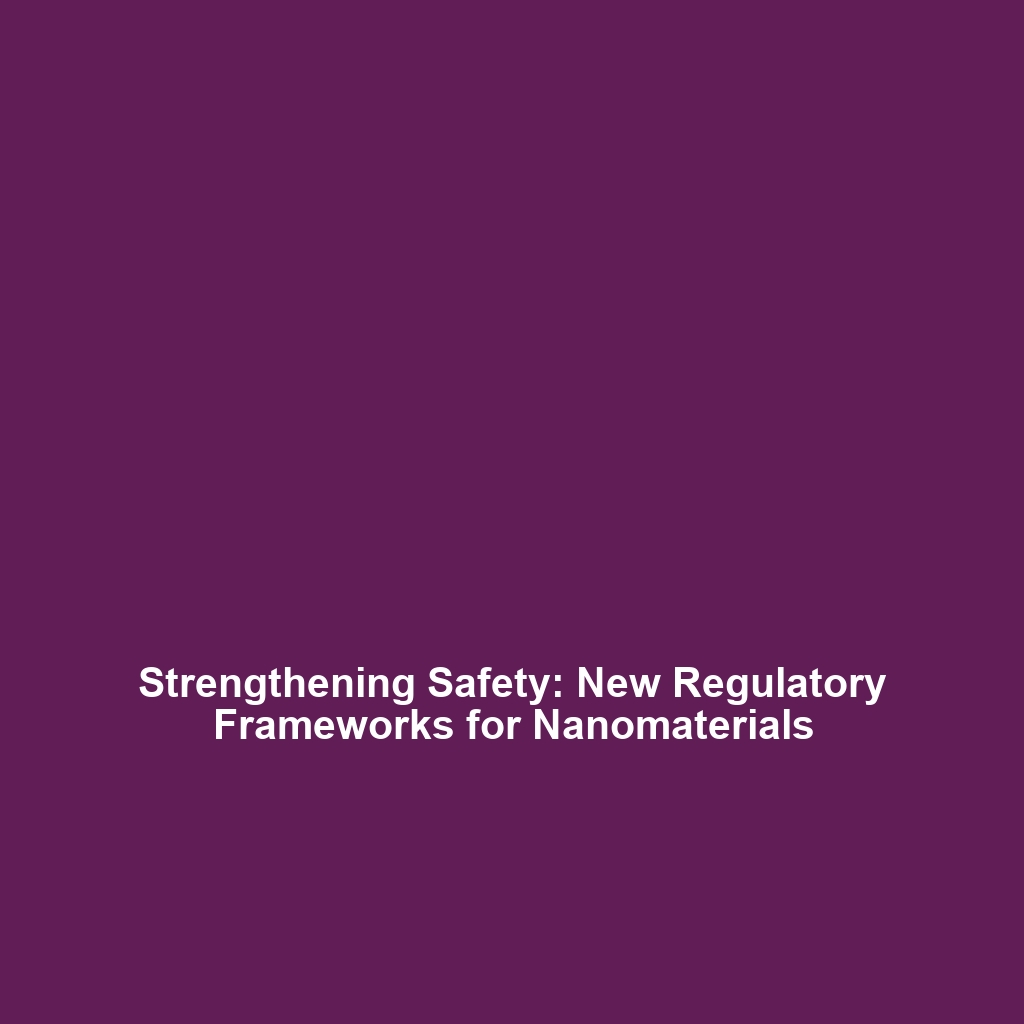Regulatory and Ethical Challenges: Need for Safety Standards in Advanced Nanomaterials
Introduction
The emergence of advanced nanomaterials has revolutionized numerous fields, from medicine to electronics. However, as these innovative materials continue to infiltrate various industries, the regulatory and ethical challenges regarding safety standards have come to the forefront. Understanding these challenges is crucial as it ensures the responsible development and deployment of nanotechnology, prioritizing public health and environmental safety. This article delves into the significant need for robust safety standards within the context of advanced nanomaterials, examining their implications and consequences for future advancements.
Key Concepts
Understanding Regulatory and Ethical Challenges
Regulatory challenges in advanced nanomaterials pertain to the frameworks that govern the testing, approval, and monitoring of nanotechnology products. Ethical challenges often arise from the potential risks associated with nanomaterials, including their impact on human health and the environment. Key concepts include:
- Risk Assessment: Evaluating potential health impacts of nanomaterials.
- Public Perception: Addressing public concerns regarding safety and ethical practices.
- Legislative Frameworks: Establishing guidelines for regulatory processes worldwide.
Applications and Real-World Uses
The regulatory and ethical challenges surrounding safety standards manifest prominently in various applications of advanced nanomaterials. Some notable examples include:
- Medical Devices: Nanoparticles in targeted drug delivery systems to enhance efficacy while minimizing side effects.
- Environmental Remediation: Utilizing nanomaterials for cleaning pollutants from water sources, where safety standards must ensure no secondary toxic effects occur.
- Consumer Products: Incorporation of nanotechnology in cosmetics, requiring transparency regarding potential health risks.
Understanding how these applications align with regulatory frameworks is essential for the responsible advancement of nanotechnology.
Current Challenges
Despite the progress in nanotechnology, several challenges persist in implementing safety standards:
- Limited Regulations: Inconsistent global regulations create loopholes and uncertainty.
- Lack of Standardized Testing Methods: Variability in testing practices hampers risk assessment.
- Insufficient Public Awareness: Low understanding of nanomaterial risks among consumers can lead to misinformed decisions.
These challenges highlight the urgent need for standardized protocols and public education initiatives.
Future Research and Innovations
The future of regulatory and ethical standards in advanced nanomaterials looks promising with ongoing research focused on:
- Breakthrough Technologies: Development of safer nanomaterials with reduced toxicity.
- Advancements in Regulation: Creating more comprehensive global frameworks to guide nanotechnology safety.
- Enhanced Public Engagement: Educating stakeholders about nanotechnology implications and engaging communities in discussions.
The path forward necessitates innovative approaches to ensure the ethical use of nanotechnology.
Conclusion
Regulatory and ethical challenges in establishing safety standards for advanced nanomaterials are critical to the future of nanotechnology. With extensive research, robust regulations, and increased public engagement, we can mitigate potential risks while reaping the benefits of these transformative materials. It is imperative for stakeholders, including researchers, regulators, and consumers, to collaborate in fostering a safer and more informed approach to nanotechnology.
For further reading, explore our articles on Current Developments in Nanotechnology and The Impact of Nanotechnology on Environmental Safety.

Leave a Reply